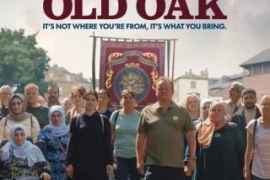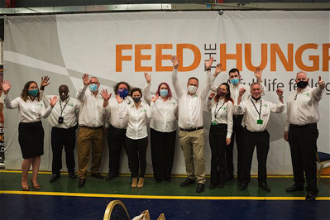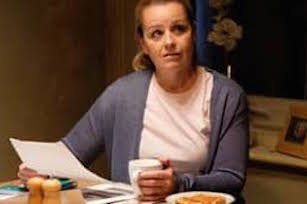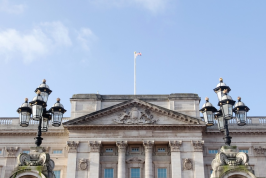London Symposium: 'UN, Great Powers and World Peace'
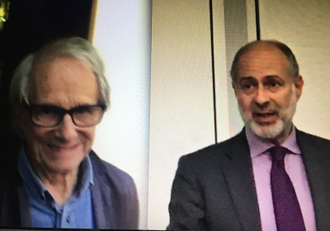
Ken Loach, Fabian Hamilton MP - image ICN/JS
Is the UN's role in governance slipping away while the world seems to be spinning out of control? This was the theme of a symposium held at the UK Parliament on 30 October, titled: 'UN, Great Powers and World Peace'. Around 100 people from war torn countries such as Syria and Yemen, and non-governmental agencies focusing on such issues as refugees and conflict, and the movement Extinction Rebellion, attended the event.
Organised by Uniting for Peace, its chair, Vijay Mehta, lamented the "severe" cash crisis facing the United Nations, with many states not paying their dues. He suggested a, "tiny elite political class" in countries around the world have "unleashed grassroots anger by flouting international law and disregarding efforts to stop permanent warfare. His latest book, 'How Not To Go To War: Establishing Departments for Peace and Peace Centres Worldwide', makes the case for saving billions of pounds in military spending which the UK and other governments could utilise for job creation, healthcare, education and sustainable peacebuilding.
Fabian Hamilton MP, Labour's Shadow Peace and Disarmament Minister, reflected that without peace, major issues such as global inequality and the climate crisis cannot be addressed. He pointed out that the cost of war in the last decade has been 13 million trillion dollars per year.
"Peace is a global good but we undermine it with huge expenditure on the tools of war" he said. He described the United Nations as, "one of the finest achievements human society has ever created" and deplored that far less investment goes into peacebuilding than into war. "The UN and its agenda for peace is more important now than it has ever been". He promised that a Labour government "will embed peace into our foreign policy". Arms exports to Saudi Arabia would cease, because of their fuelling of conflict in Yemen. He would hope to halt the huge arms fair held in London every two years, and initiate a defence diversification agency which would redeploy workers currently engaged in the arms trade. He called for peacemaking to be in the curricula for schools.
Award-winning filmmaker Ken Loach, the hero of socially conscious cinema, described three conflicts that he has highlighted in his films and how powerful nations and interests have undermined peace.
In Nicaragua, the Sandinista revolution promised better health and education but the United States trained and funded a terrorist organisation - the Contras - to destroy it, launching "catastrophic" attacks on civilians and schools. They "destroyed the threat of a good example" and showed that "in defence of their interests the big capitalist economies will do anything."
His second example was the Spanish Civil War where the British government did not assist Spain's democratically-elected government to resist General Franco in the 1930s. "The British government chose fascism" and "it is important that we remember our history, even though we get abuse when we try and tell the truth."
The third example was Ireland, which suffered through "being a colony of Britain since Norman times". He felt the UN has good laws but they are flouted. Loach described the Iraq War as a "war crime" and would favour its instigators such as Tony Blair being held accountable for the loss of life. He applauded Julian Assange, who is being persecuted "because he told the truth of what Americans are doing in Iraq". He favoured civil society continuing to play a role to campaign for the rule of law and showing solidarity with oppressed peoples, such as Kurds and Palestinians. Loach wanted a "regenerated UN" and its continuing "unequivocal opposition to violence to others". He hoped street protests such as Extinction Rebellion would develop more political clout.
Lord Meghnad Desai suggested that the structural inequality within the UN holds it back from its essential work to promote world peace. He recommended dismantling the veto system, that is the power of the five permanent members of the UN Security Council to veto any "substantive" resolution. And he would like a redistribution of voting voting power - "a union of states should be far less unequal". The power of countries in the global south should be strengthened and the whole military/industrial complex reviewed. "Of course we need the UN - its common vision, its diversity, its inclusion" he said "and celebrate its achievements, such as the Paris Climate Agreement of 2015."
There was a general feeling that the United Nations and its various agencies are central in upholding and implementing the principles enshrined in the Universal Declaration of Human Rights. Yet, it is not perfect and questions were raised about such issues as the effectiveness of UN peacekeeping in DR Congo. Mehta felt the UK government can do more as a Security Council member by actively helping to implement the Sustainable Development Goals, work for nuclear disarmament and also for the Paris Climate Agreement.
"The UK must put values at the hearts of its foreign policy" he said.
Films and texts of the speeches are going to be posting on the website of Uniting for Peace soon.
See: http://unitingforpeace.com/



